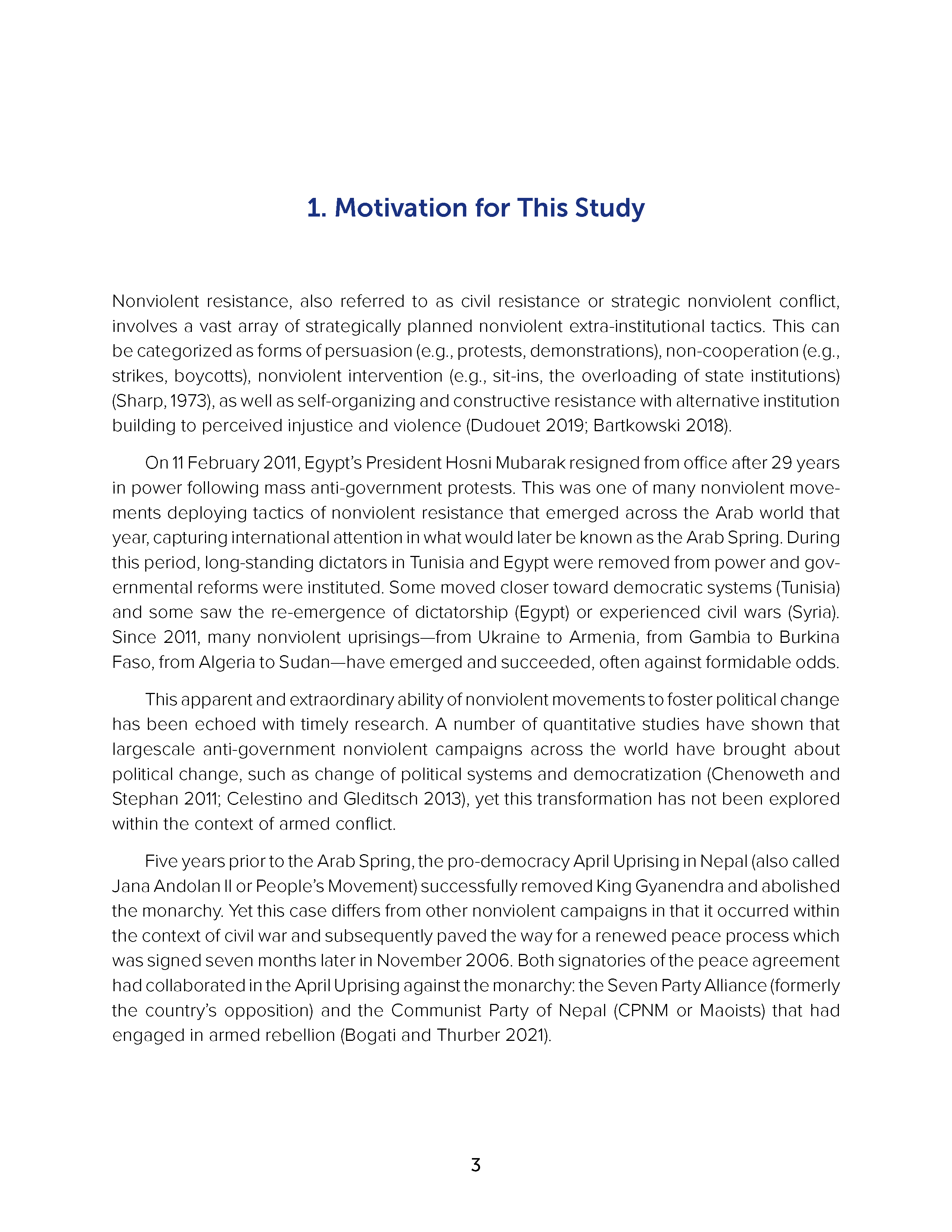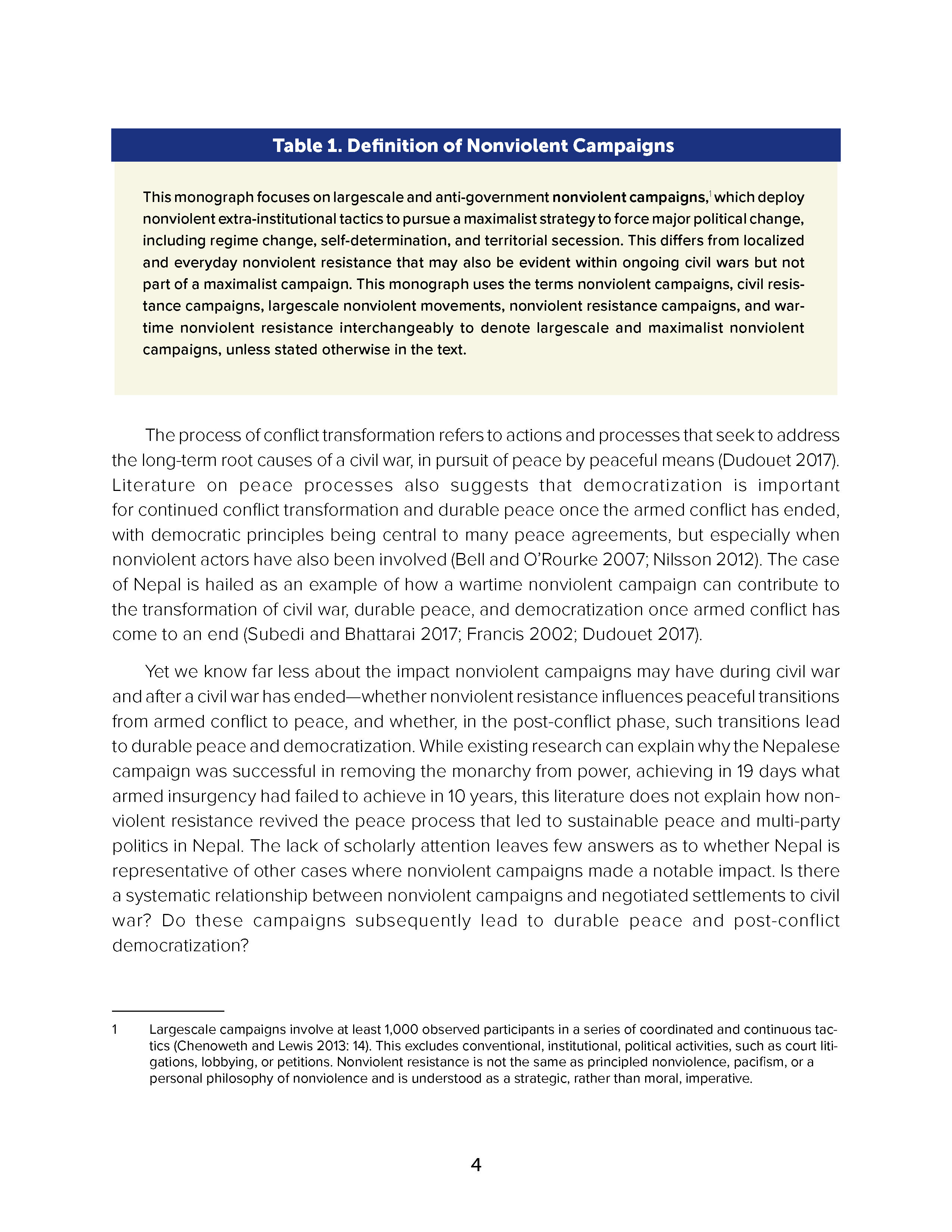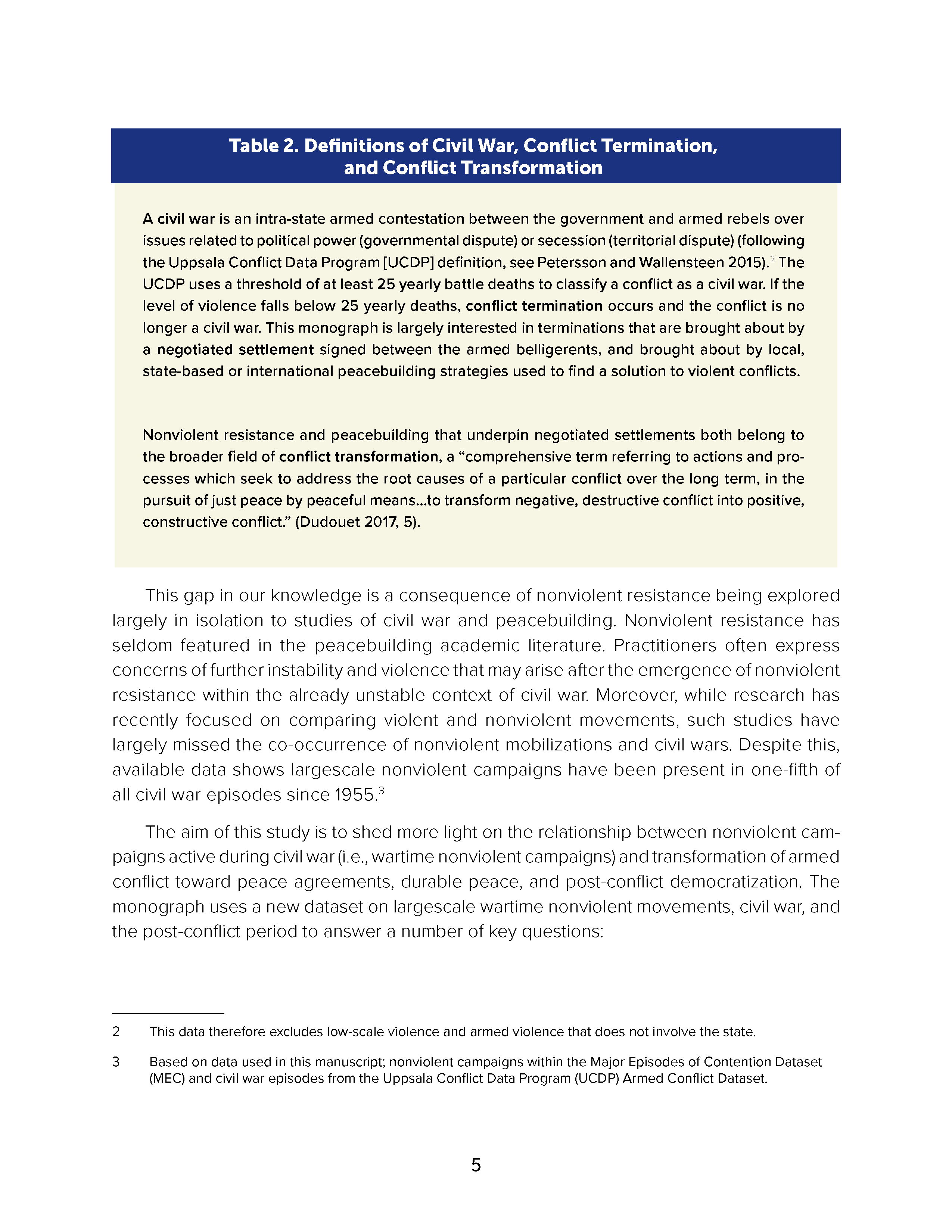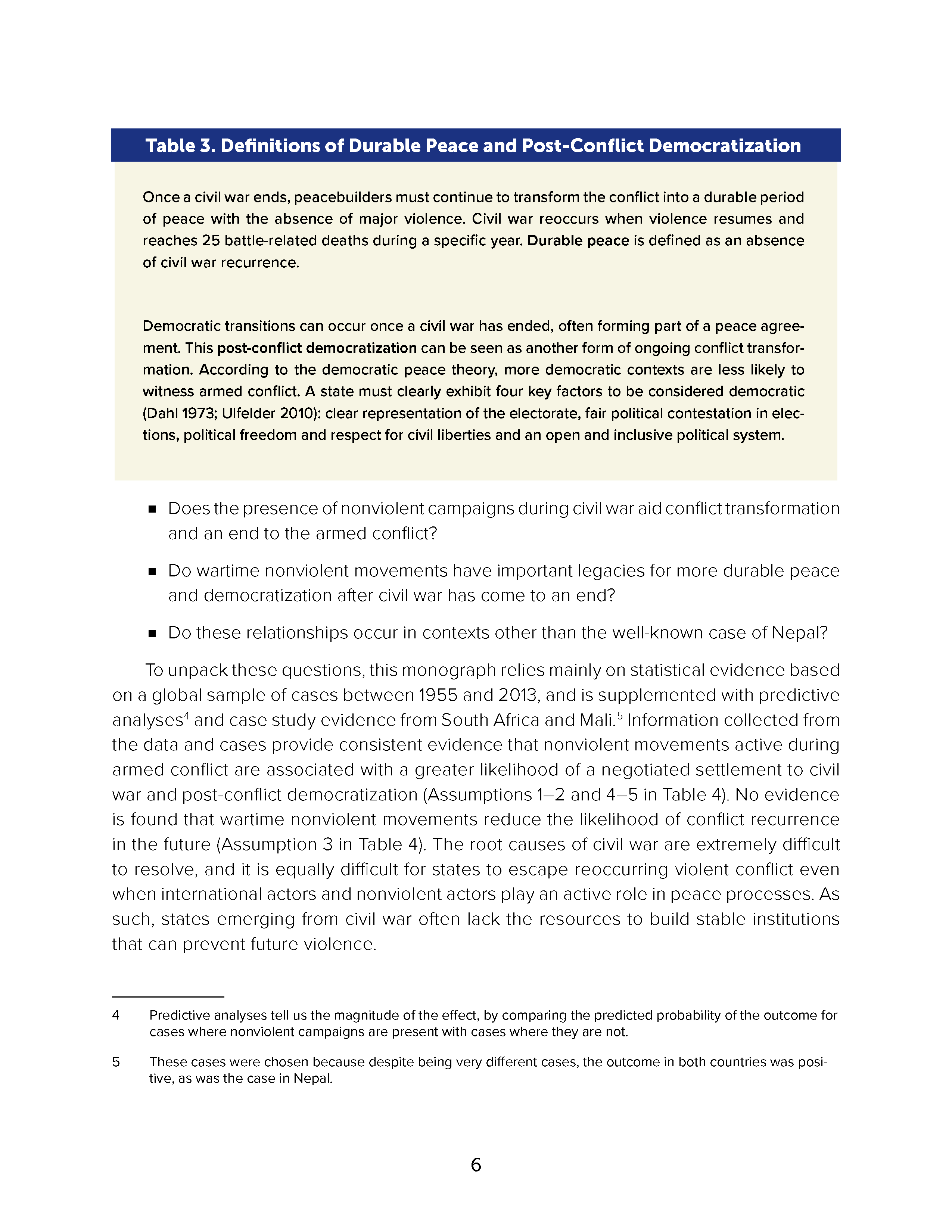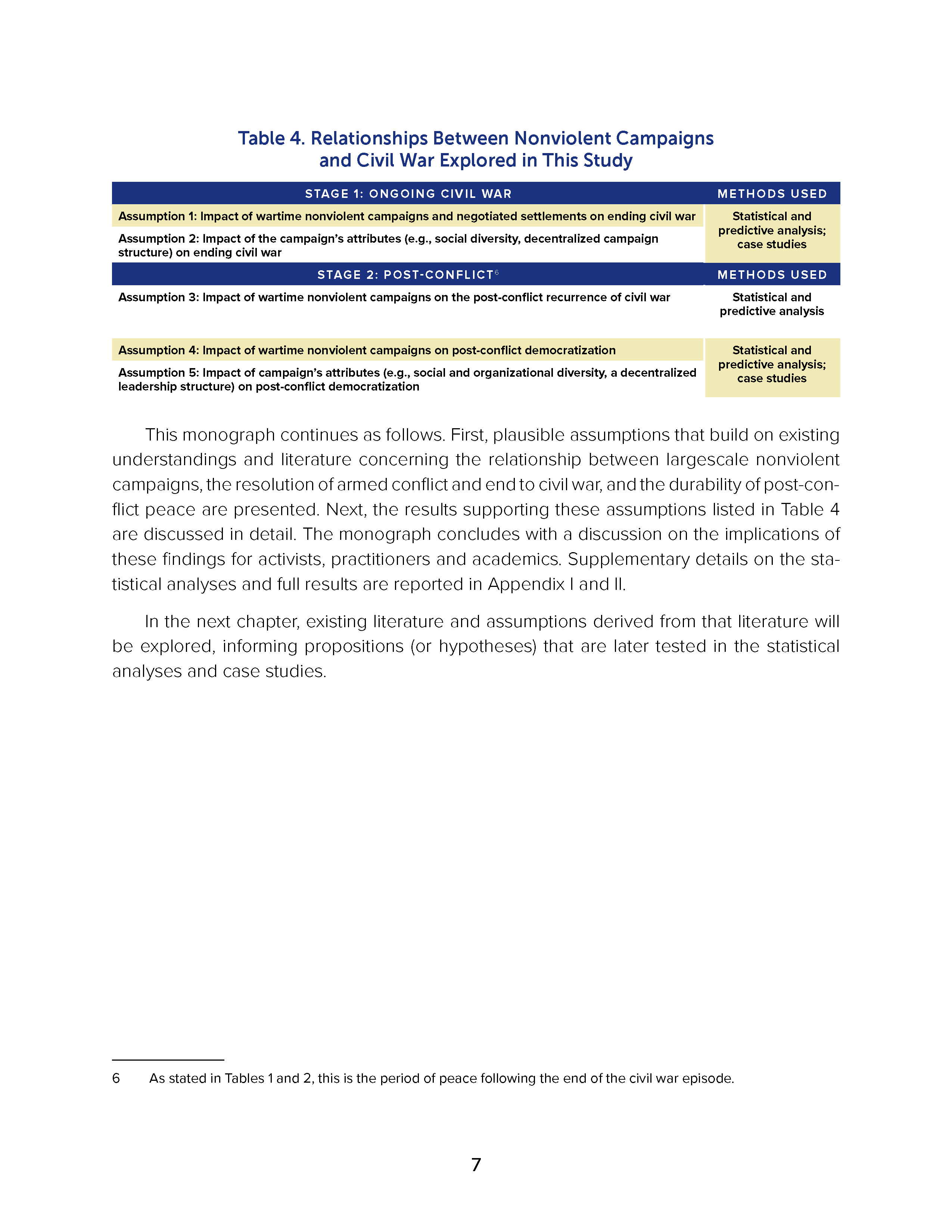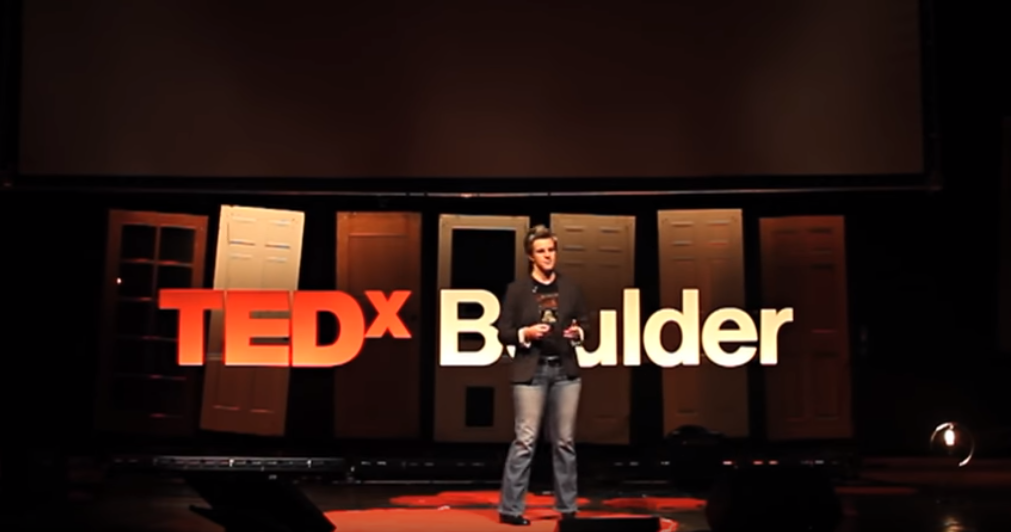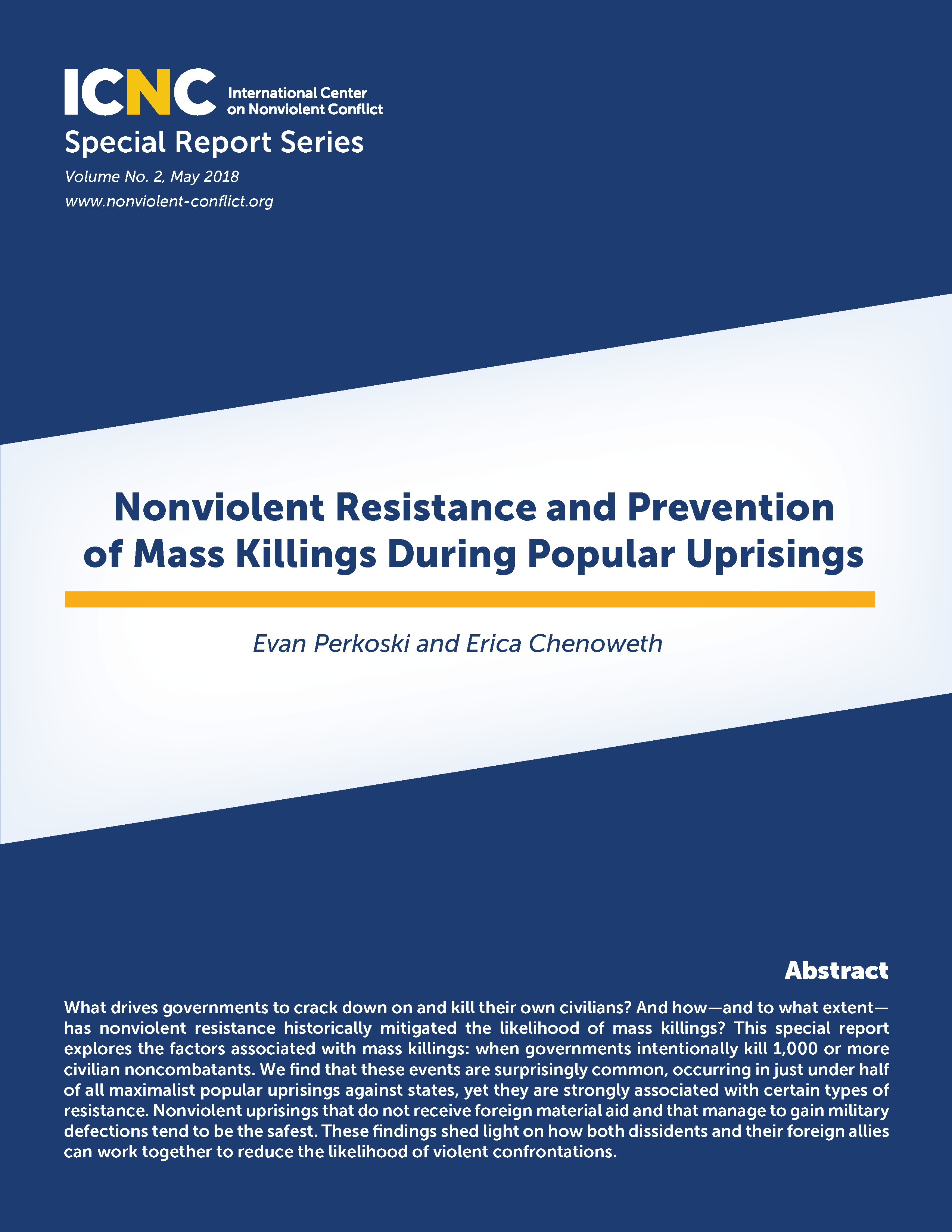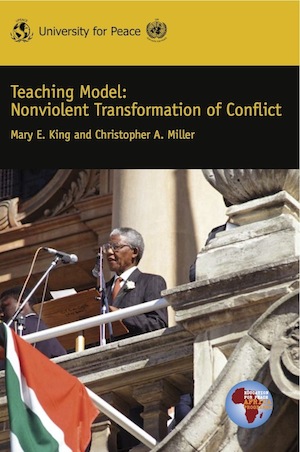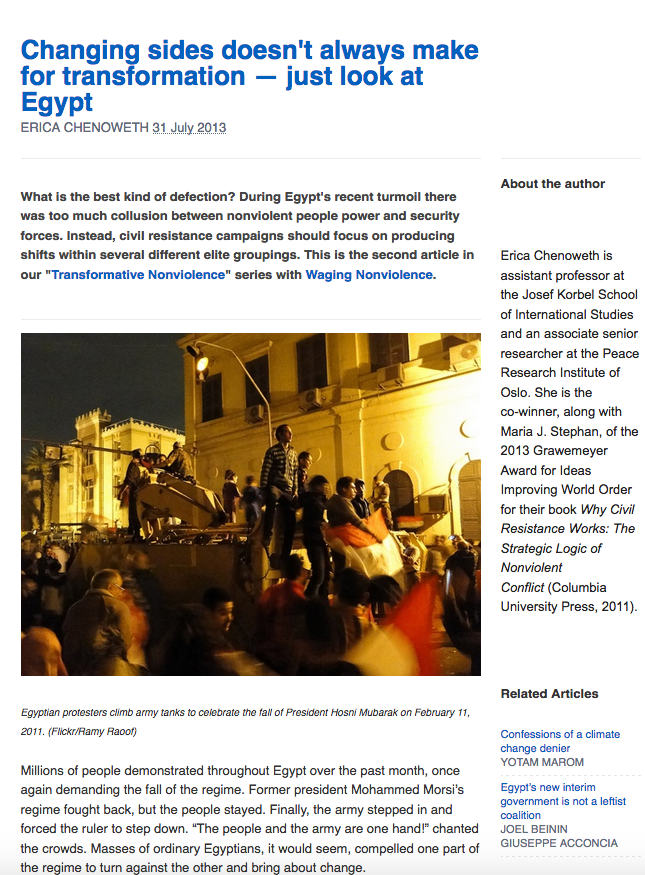The Impact of Nonviolent Resistance on the Peaceful Transformation of Civil War
Does largescale and sustained nonviolent resistance increase the likelihood of negotiated resolution of civil war? Do nonviolent movements increase the durability of peace and democratization after a civil war has ended? If so, what characteristics and types of nonviolent movements can explain this effect? In recent years, a burgeoning literature has explored the strategic advantages of using nonviolent resistance to achieve positive political outcomes, such as change of political system and democratization. Yet, despite data from this manuscript showing that one-fifth of largescale nonviolent campaigns occurred during the course of a civil war, we know little about how nonviolent action affects the transformation
of armed conflict.
Bringing together the previously isolated literatures on nonviolent resistance, peacebuilding and democratization, this monograph explores how nonviolent resistance can aid peacebuilding efforts that transform armed conflict. This monograph argues that the largescale nonviolent campaigns increase the likelihood of a negotiated settlement to civil war, by undermining governmental power in ways that open up political space and empower civil society, and by promoting constructive change which redefines societal relations. This constructive and inclusive legacy of nonviolent campaigns subsequently increases the likelihood of democratization once the civil war has ended. Using data on all civil war episodes from
1955 to 2013, this monograph finds clear evidence for these propositions, based on diverse evidence from large-N quantitative analyses and study comparisons.
Published September 2021

